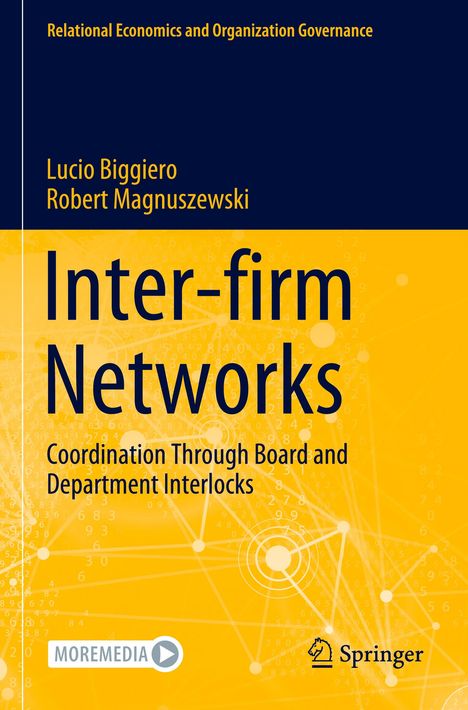Robert Magnuszewski: Inter-firm Networks
Inter-firm Networks
Buch
- Coordination Through Board and Department Interlocks
- Verlag:
- Springer International Publishing, 02/2024
- Einband:
- Kartoniert / Broschiert, Paperback
- Sprache:
- Englisch
- ISBN-13:
- 9783031173912
- Artikelnummer:
- 11769652
- Umfang:
- 344 Seiten
- Nummer der Auflage:
- 24001
- Auflage:
- 1st edition 2023
- Gewicht:
- 522 g
- Maße:
- 235 x 155 mm
- Stärke:
- 19 mm
- Artikelnummer:
- 11769652
- Erscheinungstermin:
- 18.2.2024
- Hinweis
-
Achtung: Artikel ist nicht in deutscher Sprache!
Weitere Ausgaben von Inter-firm Networks |
Preis |
|---|
Klappentext
This book examines the inter-firm networks created by interlock coordination through shared directors (inter-board) and managers (inter-department) at various levels: whole aggregate, core vs. peripheral companies, and distribution by country and sector. Presenting an empirical case study on all the limited liability or stock companies of the aerospace industry in the European Union and its interlock partners worldwide, the authors shed new light on these forms of coordination. Moreover, they reveal the relevance of shared managers coordination and hybrid manager-director interlocks.The book applies advanced statistical and social network analysis alike by combining firms attributes (e. g. standard economic-financial parameters) and topological indices for firms (e. g. centrality and cluster measures). By conducting the analysis at both the aggregate network level and the cluster or corporate group level, the authors show how extensive and intensive the interlock forms of coordination are, especially when dealing with shared managers. By testing seven hypotheses concerning the research stream on board interlocks and (more broadly) inter-firm networks, the study offers new insights into the role of the financial sector, on the relations between interlock coordination and firms performance, on the role of geographical, technological and organizational proximity, and on the relations between interlock coordination and firms size. As such, this book will appeal to scholars of organization studies, business and management studies, industrial and evolutionary economics, and economic sociology, as well as officers and policymakers at anti-trust regulation institutions.


